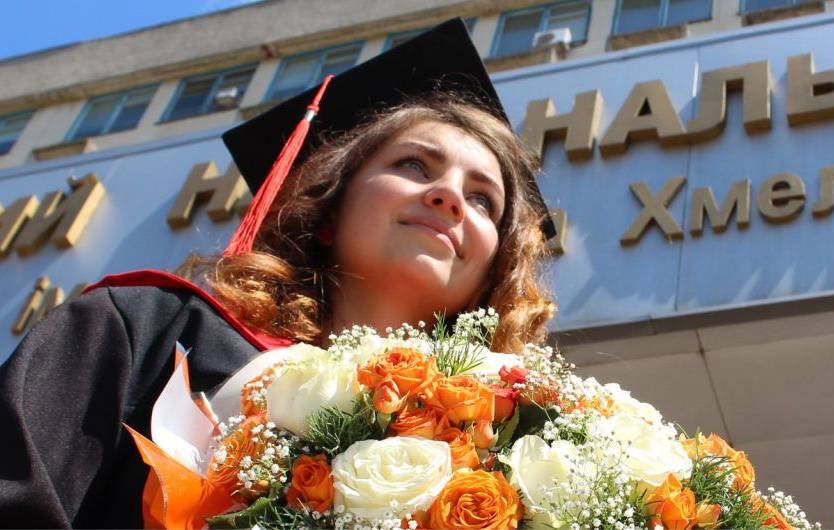A team of administrators and faculty members from Bohdan Khmelnytsky National University of Cherkasy, selected through a competition held by the Ministry of Education and Science of Ukraine, has begun its participation in the Academic Managers Professional Development Program.
This initiative is implemented under the World Bank project “Ukraine Improving Higher Education for Results Project (UIHERP)”, carried out by the Ministry of Education and Science of Ukraine in cooperation with the British Council in Ukraine.
The goal of the program is to strengthen management competencies, promote a modern vision for university development, enhance cooperation with local communities, and foster innovative educational practices.
The university team includes Oleksandr Spriahailo, Vice-Rector for Scientific, Innovation and International Activities, Associate Professor at the Department of Agronomy, Biology and Ecology; Olena Kulish, Dean of the Faculty of Psychology, Associate Professor at the Department of Psychology; Halyna Lutsenko, Professor at the Department of Automation and Computer-Integrated Technologies; Mykola Rudenko, Acting Director of the Educational-Scientific Institute of Economics and Law, Professor at the Department of Entrepreneurship and Marketing; Nataliia Slyvka, Head of the Department of Modern English Teaching Practices; Svitlana Koval, Head of the International Relations Office, Senior Lecturer at the Department of Journalism, Advertising and PR Technologies; Serhii Bondarchuk, Associate Professor at the Department of Chemistry and Nanomaterials Science.
The first module of the program took place on October 7–10, 2025, at the Ukrainian Catholic University and covered topics such as current trends and policies in higher education, the social mission of universities, communication and interaction with the community, among others.
During the training, participants engaged in a series of analytical and practical sessions addressing key challenges and transformations in the field of higher education. The module’s program was designed to provide an in-depth understanding of the modern context of university functioning.
One of the key topics addressed was the transformation of universities under the influence of global trends. Dmytro Sherenhovskyi, Vice-Rector for External Relations and Public Service at UCU, outlined the changes that are shaping modern education, including digitalization, the introduction of artificial intelligence, and the development of new leadership models. He paid special attention to the concept of distributed leadership, where the responsibility for the development of the university is shared not only by administrative units but also by the entire academic community.
During the session, led by Mykola Trofymenko, Deputy Minister of Education and Science of Ukraine, participants discussed changes in educational policy, including the increased autonomy of higher education institutions, the introduction of supervisory boards, and new mechanisms for ensuring the quality of education. According to the speaker, these tools should become the foundation for the competitiveness of Ukrainian universities within the European educational space.
A separate session focused on the role of the university as an active participant in community life. Myroslava Chekh presented the concept of a public university, demonstrating, using the examples of Great Britain and Germany, how educational institutions can become centres of socio-economic development in their regions. This approach is especially relevant in the context of Ukraine’s post-war reconstruction, when universities have the potential to serve as hubs of intellectual and civic revival.
An important topic of the module addressed the interaction of universities with employers and business. Yaroslav Prytula, First Vice-Rector of UCU, shared successful examples of developing dual education programs, establishing joint laboratories, and creating educational programs in partnership with companies. Such cooperation, he noted, allows universities to design educational programs that are closely aligned with the actual labour market needs.
Oleksii Molchanovskyi, Head of the UCU Innovation Office, spoke about effective communication with the community. He emphasised that universities should actively build dialogue with all stakeholders – from students and faculty to government bodies, media, and local communities. A successful communication strategy, the speaker highlighted, should combine various channels, including social networks, local media, events, and partnership initiatives.
A special focus of the program was the third mission of universities – public service. During these sessions, participants discussed how educational institutions could not only teach and conduct scientific research but also serve society through social, cultural, and educational projects that contribute to community development.
A highlight of the module was a conversation with Taras Dobko, Rector of the Ukrainian Catholic University, who stressed that a culture of trust and shared leadership forms the foundation for fulfilling a university’s social mission. He shared UCU’s experience in building a community that is not afraid to take responsibility for the country’s development.
“Participation in the program provides an opportunity to reflect on our university in the context of modern European management practices and to understand how to combine academic quality, innovation, and social mission,” noted Oleksandr Spriahailo, Vice-Rector for Scientific, Innovation and International Activities at Bohdan Khmelnytsky National University of Cherkasy.
https://cdu.edu.ua/en/news-en/bknuc-academic-management-team-enhances-leadership-competencies-through-the-professional-development-program.html#sigProId645398c35b
Svitlana Koval, Head of the International Relations Office














